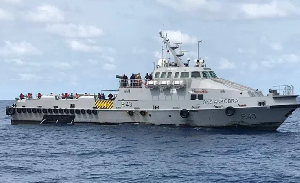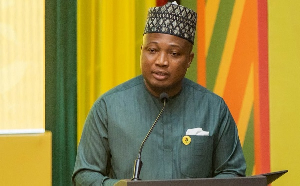All must get involved to address the present economic malaise, says Bernard Otabil
I have had to, in recent months, explain problems confronting the Ghanaian economy to many avid readers of this column who got in touch with me wanting to know the “true” state of affairs. In very simple terms, subject after subject, I had to explain the issues for them to understand. Tough job isn’t it? Well, it’s enjoyable too.
Even though many got in touch via email, you could still, clearly, from reading their submissions, see a picture of despondency.
And why not? If you read the various newspapers these days, you will notice that most of the economic evangelists are preaching doom, with very few expressing optimism that the economy, would, at some point bounce back. This fuels a mood of despondency, doesn’t it?
In fact, it has become a recent phenomenon for many to preach doom because not only has there been a significant reduction in the living standard of most people because of increases in utility prices and other costs, that have affected disposable incomes, but also the government’s admission that there are difficulties and, therefore, there was the need for the International Monetary Fund to bail the country out of its misery with some cash injection had increased anxiety.
Wither are we drifting, some keep wondering.
In effect, all is not well but the other side of the coin, however, is that the government is introducing measures aimed at correcting the imbalances and that would improve macroeconomic stability and, coupled with fiscal discipline, cause economic rebound.
Everyone seems to have a view though, as to what needs to be done. As comments are free to express, there have been theories from economists, politicians, social commentators and lay commentators as well, all aimed at addressing one thing: The economy.
Readily, yes, it is the economic problems that matter and therefore we shouldn’t lose sight of this fundamental problem, if we are focused on coming back on track. We, of course, refers to the optimists that see the future as looking good and not the pessimists that see no good.
But, frankly, the long and short of it all is that there is a significant shift in the way countries are run these days, or the way economic actors behave. For instance, fundamentals that used to support “best practices” in economic management have suddenly failed to become the building blocks on which one could formulate strategies and grow.
Where is the market economy now? I dare ask. Conventional frameworks for economic thinking can no longer support the wisdom behind “markets-work-and-they-should-be-left-alone” model.
Indeed, if that was so, how come in the heat of the global financial crises which came to a boil in 2007, public funds were used to support ailing US private companies? And elsewhere too.
Companies that rode their luck on the wave of the “market economy”, paying obscene fat wages to their corporate executives suddenly had to fall on the government when their greedy activities forced financial markets to crash. Left on its own, the market would have probably “closed” the global economy by now.
In the case of Ghana, the long and short of it all is that there is the twin problem of energy and economy, and whereas one could reinforce the other, they can also not be treated as the same.
Take the case of Nigeria for example. While having a discussion with a Nigerian friend on wide ranging issues, he mentioned the power crises in Ghana as something akin to the problem in Nigeria but with different diversified effects.
Whereas, admittedly, it wasn’t good for the energy situation to be what it is today in Ghana, his claim that “if the economy itself was strong enough to absorb some of the economic shocks thrown up because of the power crises, the country wouldn’t have been in the situation it was in now”, offered some respite. There is the economic problem on one hand, and the power situation on the other.
“In Nigeria, we have similar power crises, and in fact, in our case most people don’t even expect power at all because of the bad situation but the economy, somehow, has been able to support some of the shocks and industry is moving on nicely”, he said.
Yes, it’s the economy, and the mess is not an ordinary one as it involves both external and internal factors that need to be addressed.
So let me just bore you with just a few. As a country that is highly dependent on primary commodities, the fall in commodity prices on the international market has all but reduced the needed revenue to keep the economic wheel spinning. The worst of this external shock event is the impact of oil prices on revenue from the oil sector.
Recently, Ghana joined the league of oil producing countries in Africa, bringing hope to many. This also coincided with the country’s affirmed status as a middle income country, albeit at the lower level of the ladder.
The long and short of it is that whereas the country had received less from its projected export revenue, it was also not going to be able to access some of the loans and grants available to “less endowed” countries and would even have to borrow at a much higher interest rate as it wouldn’t be able to get some concessionary provisions on some lending.
Then the other problem of dependence on imports…With the acquired foreign taste (which we are all guilty of), huge amounts are spent on imports, distorting, significantly, the country’s balance of trade.
What this means is that as we spend so much on imports, we would have to find the needed foreign currency to satisfy the demand. This process of demanding more of another country’s currency would obviously cause that country’s currency to gain more value because the “value” that is driving the demand must be compensated. That compensation could come in the form of paying more for it if the supply is not matching the demand.
Clearly, the difficulties go far beyond the policy processes so figuring out what is to be done is not ordinary. The long and short of it all is that all hands must be on deck if we expect something good from our motherland.
Opinions of Saturday, 12 September 2015
Columnist: Bernard Otabil















